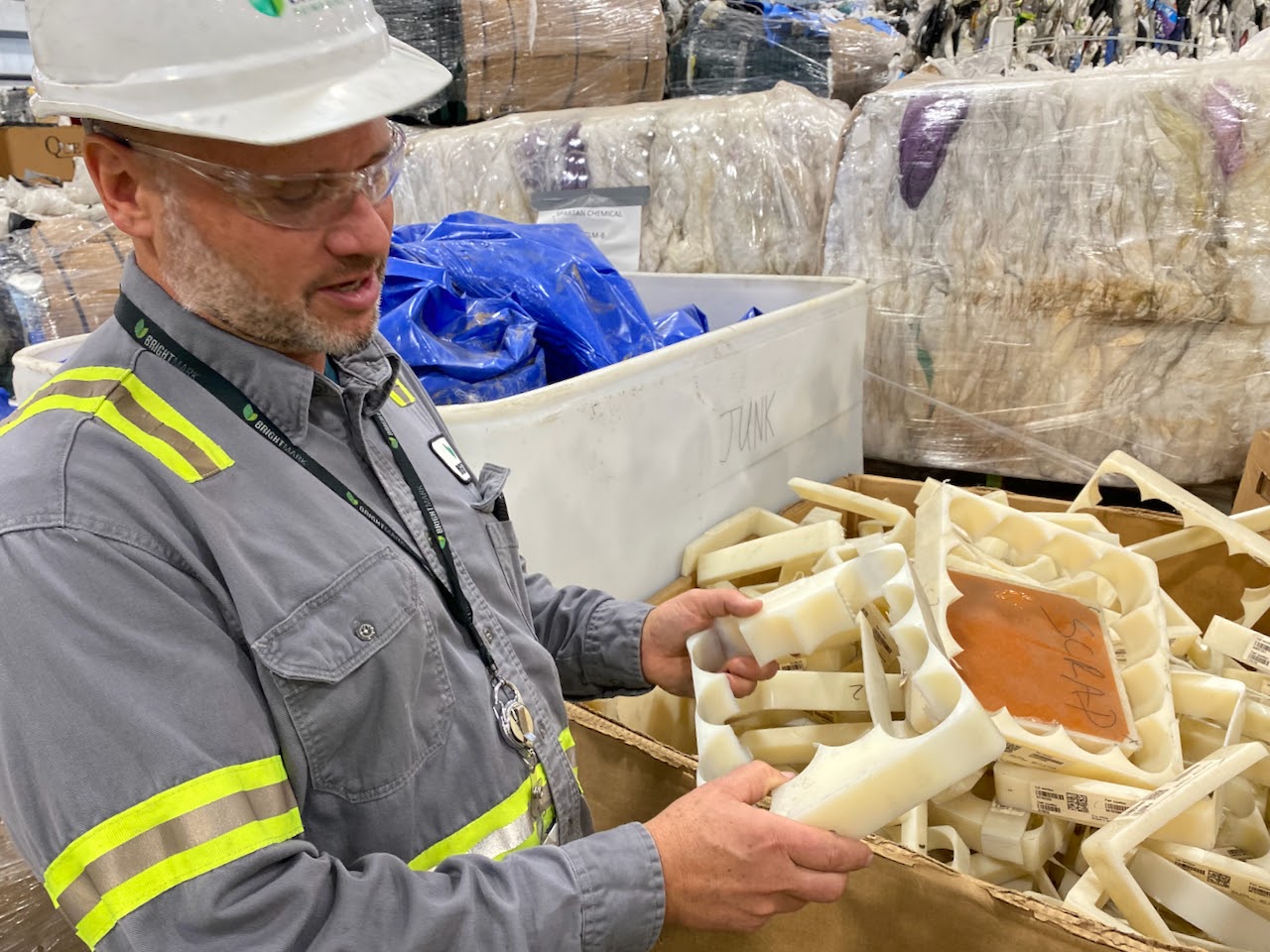Affirming long-standing incineration regulations, the Biden administration has withdrawn a plan to help ease the way for unchecked pyrolysis and gasification of plastic.
Reversing its own Trump-era proposal, the Environmental Protection Agency has spurned a lobbying effort by the chemical industry to relax clean-air regulations on two types of chemical or “advanced” recycling of plastics.
The decision, announced by the EPA on May 24, covers pyrolysis and gasification, two processes that use chemical methods to break down plastic waste. Both have largely been regulated as incineration for nearly three decades and have therefore had to meet stringent emission requirements for burning solid waste under the federal Clean Air Act.
But in the final months of the Trump administration, the EPA proposed an industry-friendly rule change in August 2020 stating that pyrolysis does not involve enough oxygen to constitute combustion, and that emissions from the process should therefore not be regulated as incineration.
Pyrolysis, or the process of decomposing materials at high temperatures in an oxygen-free environment, has been around for centuries. Traditional uses have ranged from making tar from timber for wooden ships to transforming coal into coke for steelmaking.
Today, the chemical industry is looking to pyrolysis as a way to convert plastic waste into synthetic gases, char residue, and a type of oil that can then be turned into fuel or chemical feedstocks. (Gasification is similar to pyrolysis but uses some oxygen.)
Proponents argue that pyrolysis works with plastics that are otherwise difficult to recycle, providing an alternative to typical mechanical methods like shredding, melting and remolding the waste into new products. The industry has marshaled such arguments in lobbying state legislatures across the country to pass laws that incentivize the development of a chemical recycling industry for plastics.
The world is making twice as much plastic waste as it did two decades ago, with most of the discarded material buried in landfills, burned in incinerators or dumped into the environment, according to the Organization for Economic Cooperation and Development, a forum for developed nations.
Annual production of plastic is expected to triple by 2060 to 1.23 billion metric tons yearly, with OECD countries like the U.S. producing far more per person than their counterparts in Africa and Asia. Only 9 percent of plastic waste is successfully recycled, the organization reports.
Responding to growing concern, the chemical industry has championed what it calls advanced recycling. But government scientists have questioned the supposed environmental benefits of the chemical recycling of plastic waste as well as the technology’s commercial viability, at least in the short term.
Read more: EPA Spurns Trump-Era Effort to Drop Clean-Air Protections For Plastic Waste Recycling
